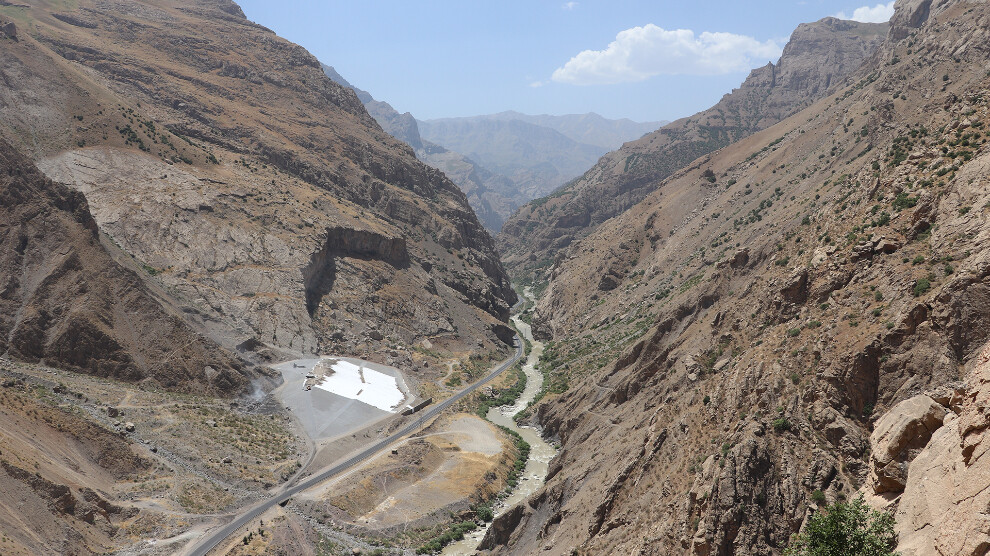Ecological plunder in Zap Valley endangers all living creatures
All living creatures are under threat in Colemêrg, where the number of sand quarries and mining activities are increasing day by day. The water in the Zap Valley is polluted because of the quarries protected by the military.

MEDİNE MAMEDOĞLU
Colemêrg (Hakkari)- In Turkey, where the climate crisis has been deepening due to the ecological plunder, natural areas continue to be opened for the use of the capital. In Kurdish cities, the constructions of the dams, mines or sand quarries aim to depopulate the region. Almost all living creatures are under threat in the region causing a decrease in agriculture and animal husbandry.
Colemêrg (Hakkâri) is one of the Kurdish cities where a policy of ecological degradation is implemented. In the city, known for its magnificent glacier mountains, plateaus and underground waters, the sand quarries and mines threaten all living creatures.
The sand quarries built in the Zap Valley pollute water and threaten all living creatures while the thermal power plant built at the foot of Mount Sümbül affects the lives of thousands of people.
There are many endemic species in the valley
The Zap Valley is located in Başkale, Gever (Yüksekova) and Colemêrg city center triangle and extends to Iraqi territory. The Great Zab flows through the Taurus Mountains, forming a narrow and deep valley. The Great Zap is also one of the fastest flowing rivers. The Zap Valley has 30 plant species and 15 of these species are endemic. The valley is the home of a plant named Galium zabense and many wild birds such as the bearded vulture (Gypaetus barbatus) and Neophron percnopterus.
Sand quarries pollute the water
There are also many villages in the valley. In the valley where there are more than one sand quarry, no measure is taken to protect living creatures. Sand quarries keep polluting the water. While the villagers living in the valley use the polluted water less than before, the flow rate in the valley decreases every year. In addition to the sand quarries, the ongoing military operations cause a decrease in groundwater. We spoke to Çilem Aydın, member of the Ecology Association, about the effects of sand quarries on nature and living creatures.
‘Quarries pollute drinking water’
“Like the sand and mine quarries built all over the world, the sand and mine quarries in Hakkari were built on water resources and forested areas. These sand and mine quarries negatively affect water and ecosystems. For instance, dozens of sand quarries have been built along the Pesan and Pesosin streams of Hakkari’s Şemdinli district, along the streams in the town of Derecik. Some of these quarries are used by private companies while some are used by the military to build outposts. These sand quarries not only pollute drinking water but also affect all living creatures. They also affect agriculture in the region,” Çilem Aydın told us.
‘Quarries will depopulate the region’
Calling to protect the Zap Valley, Çilem Aydın said, “The sand and mine quarries pose a threat to people living in the region. Due to the dirty water, people will start buying water from markets. If the number of quarries increases, they will depopulate the region; many villagers will be forcibly displaced to different regions.”
